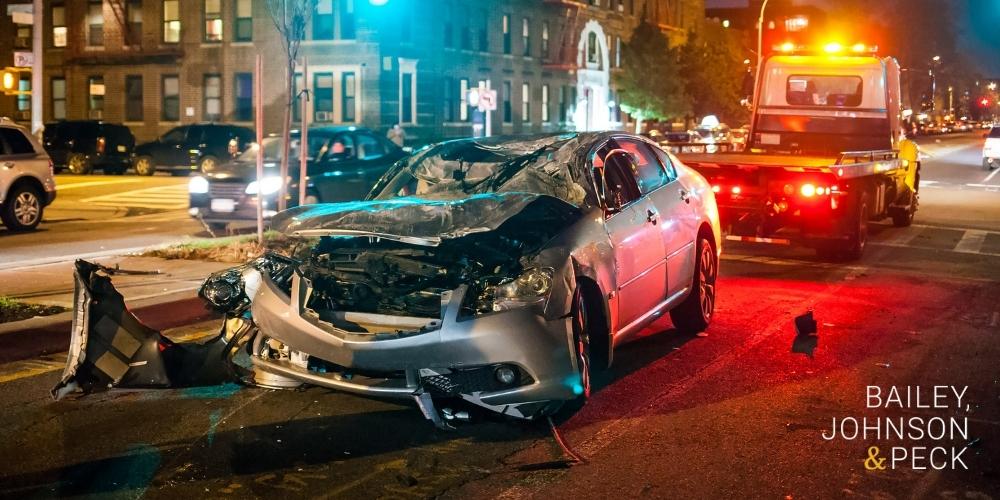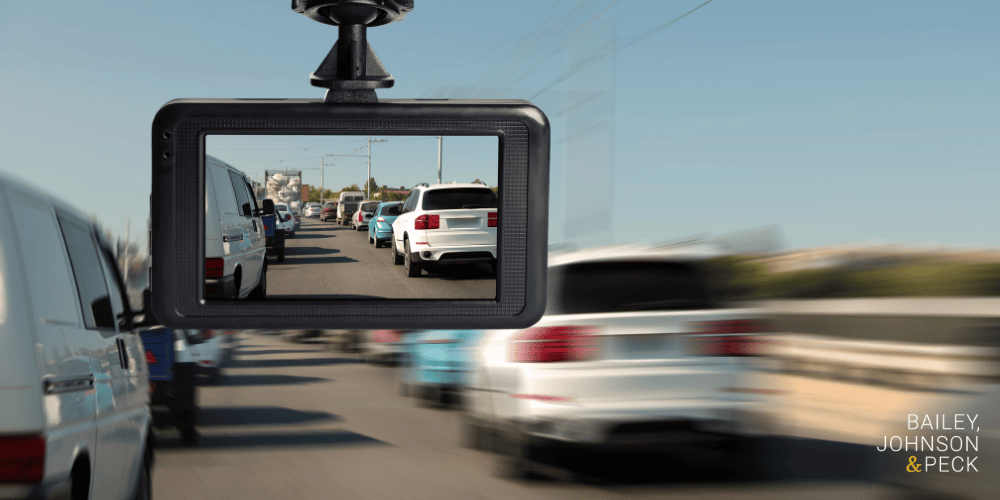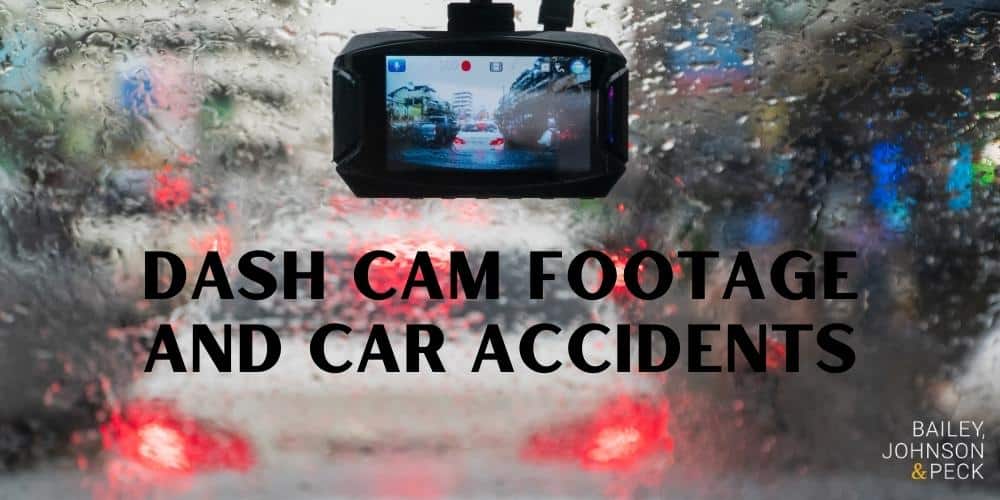Thanks to the rapid advancement of modern technology, many vehicles now have dash cameras, which can be incredibly helpful in capturing the events leading up to a car accident. Not only that, dash cam footage can help assign appropriate blame in car accidents and other crimes as well. Before you spend hundreds of dollars on a dash cam though, it’s important to know whether dash cam use is legal in your state and how dash cam footage could potentially hurt you in a personal injury case.
Albany car accident lawyers at Bailey, Johnson & Peck are well-versed in New York personal injury law and video consent law. We have been defending personal injury victims in court for 40 years. We are truly the best defense team to have on your side. Contact an Albany car accident lawyer at 518-456-0082 for additional information.
What is a Dash Cam?
A dash cam is a tiny camera that sits on the dashboard of a car and records everything on the roads. Some dash cams even record what’s going on inside the car too.
Dash cams can range from $50 to more than $300, depending on how many features you want. The cheapest dash cams on the market tend to create low-quality video footage, while the most expensive ones can create high-quality videos and even include GPS coordinates of your car’s exact location. You can even connect some dash cams to your smartphone.
Most dash cams plug into a car’s cigarette lighter socket. So when you turn your car on, the camera will start recording everything on the road. When you turn your car off, the camera will stop recording. Dash cams save video footage on an SD card. An SD card could save up to 10 hours of driving video, depending on its size.
Is it Legal to Have a Dash Cam in New York?
Yes, it’s legal to have a dashcam in every U.S. state. It’s important to remember, though, that some states have specific rules about dashcam footage. For example, some state laws mandate that you can’t record anything unless all parties involved consent to the recording. These states are:
- California
- Connecticut
- Delaware
- Florida
- Illinois
- Maryland
- Massachusetts
- Michigan
- Montana
- Nevada
- New Hampshire
- Oregon
- Pennsylvania
- Vermont
- Washington
So, if you live in any of these states and you have a dash cam, you need to make sure all passengers in your car know that you’re recording. They must also consent to your recording with a dash cam. If everyone doesn’t consent, you have to turn off the dash cam.
New York law, on the other hand, states that only one person needs to provide consent before being recorded. So if you, as the driver, consent to being recorded, then that’s all that really matters.
There are also specific rules on how you can mount your dash cam in your car. In New York, you must mount a dash cam on the windshield with a suction cup. Additionally, many states mandate that dash cams can’t take up more than 5 inches of space on the driver’s side and 7 inches of space on the passenger side. If the dash cam takes up more space than that, it could pose a serious danger to you and other drivers.
Lastly, you generally can’t record if you’re parked on or driving through private property.

Can You Use Dash Cam Footage in a Personal Injury Lawsuit?
Yes, you can use dash cam footage in a personal injury lawsuit. This is the main reason why many people buy dash cams for their cars: so that they can have video evidence at the ready if they’re ever a victim in a car accident. Photos and videos generally serve as really strong pieces of evidence in both criminal and civil cases. However, most courts will only use video footage if they determine it as “relevant” in the personal injury case.
How Dash Cam Footage Could Be Used Against You in a Civil Case
There is a downside to dash cam evidence though. If you live in a comparative fault state, your actions on a surveillance video – such as a dash cam – can partially incriminate you. So if your dash cam video shows you speeding, texting and driving, or drinking and driving leading up to the crash, you could assume a portion of liability.
New York Pure Comparative Fault Laws
New York is a no fault state, which means that you have to file a car accident claim with your own insurance company in order to collect compensation for damages like medical bills, lost wages, vehicle damages, etc. Sometimes though, compensation from insurance coverage is simply not enough to cover all the damages from a car accident, especially if you suffered major injuries. That is when you could file a personal injury lawsuit against another driver in order to receive more compensation.
New York follows pure comparative fault laws. This means that the plaintiff’s compensation will be reduced based on their liability, or responsibility, in a collision. Comparative fault comes into play when both drivers share fault in an accident.
Example of Comparative Fault Incident Involving Dash Cam Video Evidence
Let’s say that a vehicle hit you, causing you to suffer catastrophic injuries and major vehicle damage. Your insurance company likely isn’t going to provide a large enough settlement to cover the medical bills associated with your crash injuries. So you decide to hire an Albany personal injury lawyer to help you sue the other driver and recover appropriate damages.
The judge and jury value your case at $100,000. But then, you show your dashcam footage of what actually happened leading up to the crash and during the crash. Maybe the dash cam audio reveals that you were talking on the phone during the crash. The court could argue that you talking on the phone served as a significant distraction that prevented you from acting quickly in the accident. However, the court determined that the other driver still shares the majority of the blame, because they ran a red light and hit you.
As a result, the court may assign 10% of the blame to you, and 90% of the blame to the other driver. Therefore, you may recover $90,000 in damages. Because of this, if you’ve sustained serious, life-altering injuries, you really need an Albany catastrophic injury lawyer on your side.
Do I Have to Show My Dash Cam Footage to the Police?
Dash cam video can be useful for more than just car accidents. There have been many times where dash cam video serves as a crucial piece of evidence in crime cases. This begs the question: do you have to show your dash cam footage to a police officer? No, you don’t have to if you don’t want to. But if the police truly believe that your dash cam recorded a crime and that the video evidence could be used to track down a suspect, they have ways of getting this footage from you.
Police could seize the dashcam footage from you through a search warrant. Additionally, police could seize your video footage under “exigent circumstances,” which means they believe that if they left the video and audio evidence in your hands, you could destroy it or tamper with it.

Call a Car Accident Attorney Bailey, Johnson & Peck Today
If you suffered a major injury in a car accident, you have legal rights. Albany car accident attorneys at Bailey, Johnson & Peck will listen to your story, examine the details of your case, and support you throughout the entire legal process. We can help you build the best defense possible against an at-fault driver, especially if you caught the entire incident with your dash cam. For additional information, contact an Albany car accident attorney at 518-456-0082.




